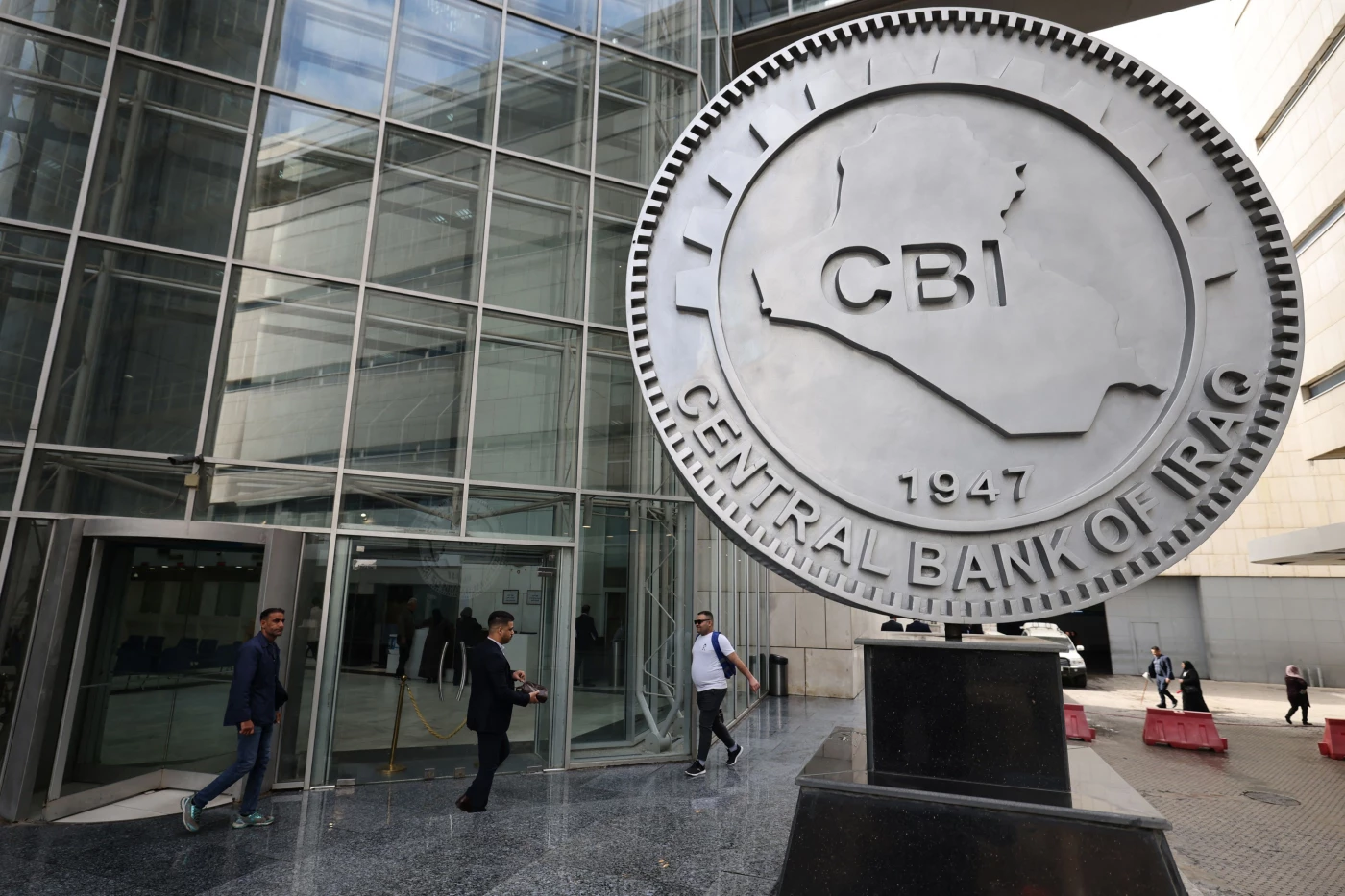BAGHDAD, Iraq - In a scene that reflects the magnitude of the challenge Iraq faces in managing its financial affairs, the government has taken an unconventional step, mobilizing all available tools to secure one of its most complex and sensitive obligations, public employee salaries. This time, however, the solution did not involve loans or temporary reliance on emergency reserves, but rather a door that had remained closed for years behind financial procedures: Tax deposits (trust funds).
With this move, the government unlocked funds that had been held in reserve for various entities and used them as a direct source of financing to pay salaries, at a moment when the public was anxiously watching and employees were living under mounting anxiety. This is an unusual scene in Iraq’s fiscal policy and highlights the intense pressure facing the government, according to economists.
The tax trust funds were transformed from dormant balances into an effective rescue tool, injecting life back into market activity and temporarily restoring confidence in the national economic cycle, according to government statements. Some official entities described the step as more than just a financial decision, calling it a “turning point” in crisis management strategy.
Iraqi media circulated a government document revealing that the Council of Ministers on April 15 approved granting Minister of Finance the authority to withdraw unclaimed tax trust funds not exceeding five years in age. These funds amount to 3,045,007,500,252 dinars (over $2.326 billion), and will be used to finance April salaries and subsequent months, deposited in the Ministry of Finance’s account at the Central Bank of Iraq.
The Heist of the Century had stirred widespread controversy in the recent past, as it was the first case to draw attention to the tax trust fund issue. The scandal broke when massive sums were discovered in tax trust accounts under the name of Noor Zuhair Jassim, a Baghdad businessman, amid accusations of using the mechanism for tax evasion or money laundering.
What are “tax trust funds”?
“Tax trust funds represent financial entitlements of companies and individuals that were deposited into a special account at the General Tax Authority for the purpose of settling their tax accounts later. A portion of these funds becomes actual tax revenue, while other parts remain unclaimed by taxpayers or are refunded to their rightful owners,” explained financial and economic expert Nabil Jabbar al-Tamimi.
According to Tamimi, these trust funds accumulate regularly in a designated account known as the Tax Trust Account. This accumulation prompted the Iraqi Ministry of Finance to issue instructions allowing these funds to be considered “final state revenue” if they remain unclaimed for a statute of limitations period of five years, based on the Unified Accounting Procedures Manual issued by the ministry.
Tamimi noted that this step effectively means most of the funds held in the tax trust account will legally become state property, which, in his view, signals the government’s financial distress, amid increasing pressure from public spending in the national budget.
“The government’s resort to using these funds does not exempt it from the responsibility of collecting other revenues generated by ministries and government entities, the fate of many of which has been unknown for years,” he told The New Region, adding that “the tax trust account remained out of the public eye for years, until the ‘Heist of the Century’ scandal revealed the enormous sums that had been accumulating annually in this account, which highlighted the importance of reviewing this file and imposing strict financial and accounting oversight on it.”
Amid the media uproar following the circulation of the government document, rumors spread that the government had withdrawn balances from Rafidain and Rasheed banks. This prompted the Ministry of Finance to issue a statement clarifying that “the funds withdrawn from the state-owned Rafidain and Rasheed banks are not citizen deposits or bank insurance reserves, but rather belong to the ministry’s sovereign accounts.” The ministry added that these funds were held as a temporary operational tool and were relocated in accordance with financial and administrative instructions to be reallocated within the general budget.
Bridge financing: A government move amid oil price volatility
Mudhhir Mohammed Salih, economic advisor to Iraqi Prime Minister Mohammed Shia’ al-Sudani, explained that the philosophy of government borrowing in public finance is not new, but rather has been in practice for decades known as bridge financing.
This philosophy, according to Salih, is based on the principle that spending obligations do not necessarily coincide with the timing of revenue collection, whether tax-related or otherwise.
Speaking to The New Region, Salih added that this financial gap is a common issue in public budgets, especially in rentier economies like Iraq, where oil revenues make up around 90 percent of total public expenditure, making the public finances highly sensitive to fluctuations in global oil prices.
Salih continued “although the average price of exported oil in the first quarter of 2025 reached $75 per barrel, which is higher than the $70 benchmark price set in the budget, current indicators warn of a downturn in the oil market.” He attributed this to two concurrent factors, OPEC+ lifting restrictions on production quotas, and an escalating trade war between the US and China, the two largest economies in the world.
These developments have triggered expectations of a global economic slowdown and caused oil prices to fall to around $63 per barrel in recent weeks, which in turn negatively affects cash flows in Iraq’s general budget.
Salih pointed out that the Iraq’s federal budget law had already accounted for a projected deficit of up to 64 trillion Iraqi dinars. In such conditions, the government turns to applying the fiscal space principle, which allows the use of available financial tools to cover fixed expenditures, especially salaries, pensions, and social welfare.
He also affirmed that infrastructure and service projects included in the government program will continue without interruption, even if it becomes necessary to rely on bridge financing through the issuance of treasury bills or government bonds, a process that requires effective coordination between fiscal and monetary policy.
Salih concluded by emphasizing that this financing approach is essential to maintaining financial and economic stability, and is implemented under regulations that ensure its effectiveness and sustainability.
IMF and budget forecasts
In its latest outlook, the International Monetary Fund (IMF) predicted that the Iraqi economy would contract by 1.5 percent in 2025, with a return to growth at 1.4 percent in 2026, due to falling oil prices and slower demand. The IMF noted that Iraq would need oil prices to average $92 per barrel in 2025 to cover its public spending, while Brent crude futures were hovering around $65 per barrel.
According to government and parliamentary statements, the 2024 budget revenues amounted to 144.336 trillion dinars, while expenditures reached 210.936 trillion dinars, resulting in a deficit of 63.599 trillion dinars. The government has been struggling with liquidity in the Iraqi dinar due to recent crises and decisions related to the US dollar.
In 2020, the Iraqi government made the controversial decision to devalue the Iraqi dinar against the US dollar, adjusting the rate from 1,182 to 1,450 dinars per dollar.
This move triggered widespread public dissatisfaction, especially as it led to notable increases in food and commodity prices in the market. The adjusted rate was later enshrined in the federal budget approved by the Iraqi parliament in March 2021.
Mechanism for withdrawing tax trust funds and converting them into revenue
Amid the ongoing financial crisis, Finance Minister Taif Sami provided a detailed explanation regarding the mechanism for withdrawing tax trust funds and converting them into permanent revenue for the public treasury. She emphasized that this move falls within the legal jurisdiction of the Ministry and aligns with cabinet decisions aimed at increasing state revenues.
In a statement to Iraqi state media, Sami explained that “the amounts paid by taxpayers as tax trust funds are temporarily deposited in a special account at the Central Bank until tax reconciliation is completed.” She added that these funds are either converted to permanent revenue if they match the owed tax amount, or the excess is refunded to the taxpayer.
The minister pointed out that most taxpayers fail to return to the General Tax Authority to complete reconciliation, which opens the door to potential tax evasion. She noted that the ministry holds lists of names and outstanding amounts owed by companies and individuals.
Warning of a looming crisis
The Iraqi parliament has now entered the fray. The parliament’s finance committee revealed its intention to summon the Director General of the Tax Authority to inquire about the legality and legitimacy of the government using liquidity from the tax trust funds. The committee emphasized that while the state can benefit from these balances, it must guarantee that the rights of citizens, including traders and contractors, are not infringed.
In statements to The New Region, several Iraqi economic experts warned of serious consequences from the government’s decision to use tax trust fund balances to cover public employee salaries, viewing the move as evidence of a deep liquidity crisis and a clear indicator of the government's failure to implement strategic and sustainable fiscal policies beyond temporary fixes.
The experts believe relying on tax trust funds to cover payroll violates state accounting and administrative principles, constituting a serious breach of public finance norms. They stressed that these funds are not actual revenues, but rather deferred rights of taxpayers, which should either be refunded or reconciled during future tax settlements, and therefore cannot be treated as disposable state funds.
The experts claimed that these actions reflect the government's inability to absorb the impact of US Federal Reserve restrictions on dollar transfers, coupled with inflexibility in managing fiscal and monetary policy, leaving the state with few and concerning options, such as this controversial solution.
They called on the government and the Ministry of Finance to be transparent with the public about the scale and causes of the crisis, and to devise clear short- and medium-term plans to address financial imbalances. This should begin with reforming expenditure structures and expanding non-oil revenue sources, instead of drawing on funds not originally designated for spending.
In recent months, global oil prices have experienced sharp and unpredictable fluctuations, raising widespread concerns about the future of energy markets and their impact on the global economy. Prices have swung between record highs and sudden drops, driven by a mix of geopolitical and economic factors.
Since 2003, Iraq’s economy has become almost entirely dependent on oil, which accounts for 95 percent of Iraq’s total US dollar revenues, making the country’s economy highly vulnerable to shifts in global oil prices.
Additional reporting by Amr Al Housni



 Facebook
Facebook
 LinkedIn
LinkedIn
 Telegram
Telegram
 X
X


